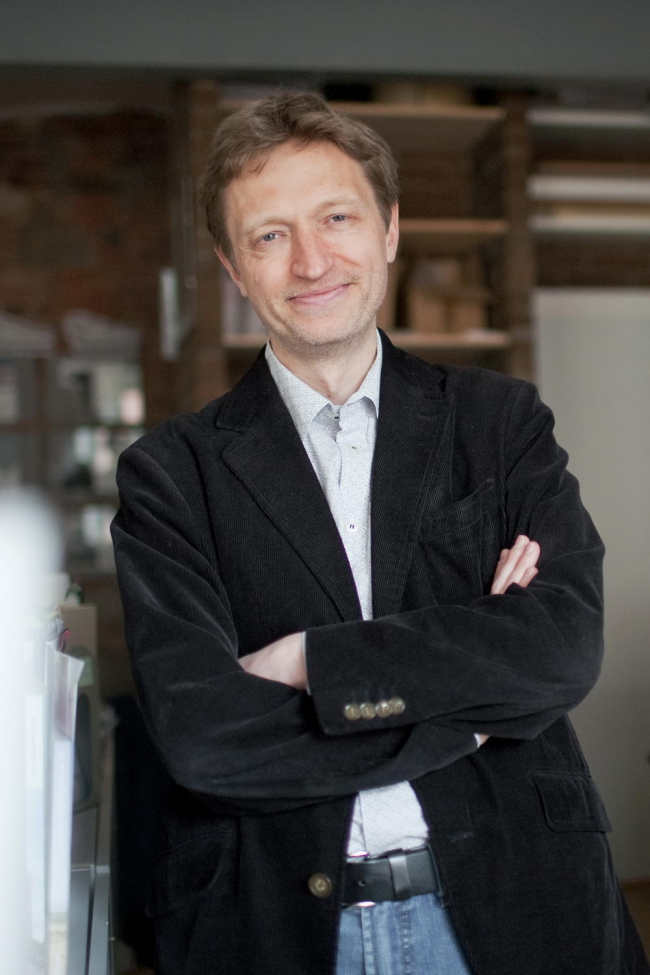|
The director of MARCH School Nikita Tokarev shared with Archi.ru about his special "Education" project showcased at "Zodchestvo - 2015" Festival.
The special project "Education" is curated by Moscow Architectural School MARCH in the person of its leaders Nikita Tokarev and Eugene Ace, and the professor of Moscow Institute of Architecture Oscar Mamleev (his interview about this special project is available here).
Archi.ru:
- I suggest we develop the subject raised both in the manifesto of "Zodchestvo - 2015" and on the manifesto of the special project "Education": what kind of architects must we prepare in our higher educational institutions? Both documents raise the issues of the young architects having to be more "self-reliant" and "proactive" - but this qualities are also something that must be taught and learned. How are you planning to go about it?
Nikita Tokarev:
- The first thing that we need to do is give our students a choice (a choice of professors, programs, tasks, working methods, and studying schedules) - but only the student himself alone must bear the responsibility for this choice. Only by making an independent and motivated choice the architect will learn responsibility. First of all, we offer different learning programs of different project studios, each of the teachers forming a unique course of his own. Second - we need to set aside some time for independent work. In MARCH, we have four "contact" days a week and one day dedicated to the students' independent work. We do not control how this time is used; quite possibly, some of the students just take a rest on that day. We ask for results and saying "sorry, I did not have the time" is simply not an option. And third - the student develops a motivated attitude in his discussions and dialogues with his professor, with other students and industry experts, and only on the basis of deep knowledge and broad horizons, as well as overall humanitarian background. And this means that you need to teach philosophy, as well as the history of fine arts and architecture, writing and presentation skills.
- What kind of architect is prepared in the "progressive" higher educational institutions, including in MARCH School? In her recent interview with Archi.ru, the professor of MARCH Narine Tyutcheva spoke about the necessity of teaching reaching the students an "ability of convincingly influencing the market". What is your opinion about that?
- We do not know what challenges our student will be facing in five or ten years' time, including - what the market situation will be then. What counts is the ability to learn fast, to adapt to new conditions, to think systematically, analyze and break down the challenge into smaller pieces, so as not to fall into the temptation of trying to solve a new challenge by old methods. And - one also must have the ability to think and act responsibly and independently that we already talked about. This basically holds true for any education, not architectural alone. It's like the proverbial saying about giving a fishing rod and teaching to fish instead of giving the person a cooked fish.
- "Zodchestvo - 2015" is held under the motto the runs "New industries" and is dedicated to the challenge of our time. Why is the educational standard that reigns in most of the Russian universities does not answer the demands of today? What do you think must be changed in it? What should be added? What challenges should the students be prepared for, the ones they least expect to deal with when they get their diplomas?
- I do not know any other architectural education program in the world that's based on the functional typology. This is the legacy of the industrial epoch and the "command and administrative" architecture. As to what should be changed, this conversation would take up a huge amount of time. From doing the first tasks (put together by the university department, the customer, or the authorities), the architect must shift over to solving the problems that are posed before him by the reality, problems that he sets himself. We as architects must form the agenda of the day, know more, and see further than our customers and consumers do. One more thing: architecture is one of the few surviving synthetic professions that is very hard to split into single specializations. A multitude of separate courses in a traditional architectural school that seemingly give the "university" breadth of horizon, oftentimes are not connected with each other and prove to be a pile of fragmentary scraps of knowledge. What we need is integrated courses that would unite various disciplines with an architectural approach, as well as a set of recognizable special courses that the student will choose for himself. Then architecture will be able to stay afloat both as a profession and as a field of human endeavor. What we try to do is prepare the architect, the master (magister) for this role. Nikita Tokarev
|
